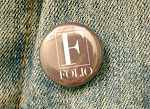Bobby Fischer, the Corduroy Killer, died last month. He was exceedingly stylish. After the heights of his chess genius have cancelled out the depths of his anti-semitism, what remains in history will be only the well-groomed mysterioso. The Britannica entry for ‘Fischer, Bobby’ will feature multiple pages cataloguing the uniform corduroy jacket, the skinny tie, and the wave of sandy bangs.
Fischer is not the most photogenic of men––that mantle is still held by Truman Capote––but like Capote, Fischer’s visual allure comes in part from the very unalluring context in which he is placed. The Chess Club that meets every Wednesday night at your local Barnes and Noble will not keep your eyes up off your magazines. The prodigy eight-year-olds that stun the old men might give you a chuckle as you settle in, but none of them will keep you as entertained as your hot chocolate. For a bookstore café, they dress eccentrically: black flood pants and white socks, ropes for belts and bulging guts. But eccentricity is an expectation they conform to well, which makes them, in the end, anything but eccentric.
Bobby Fischer was eccentric, the early Bobby Fischer. A wildly bearded bigot does little to stand out, since a man with a computer’s mind is expected to hold a few unhuman beliefs. But the Fischer of yesteryear, the young man who made even a set of black and white squares look debonair, was as eccentric as a vintage photograph of J.D. Salinger (for a photograph of the recluse now only speaks to the pains at which it was taken, whereas an image of the young Salinger speaks to a time when he didn’t mind being photographed, a concept that, compared to his current view, seems unbelievably eccentric). And eccentric is attractive.
Legend has it that Fischer’s standout looks were noticed the second he walked into his Brooklyn Barnes and Noble café. Soon every man, woman, and child came out of their books and circled round his first game. They stared at the young man’s clear skin, not his board, and after a victory they applauded his fashion sense, not his win. What did they know about chess strategy? Everyone, deep down, can recognize good taste, even if they have none themselves. Perhaps at the time they imagined they were admiring his chess and not his chest, congratulating themselves for showing interest in something they were never interested in before. But on the drive home, the husband remembered the striking lad at the checkers board, and the wife reminisced over the strapping young man and his Candy Land talent.
The same neglect applies to history. The context in which Fischer was placed, the one that by juxtaposition made him look so good, will fade away, leaving only the good looks. Should a celebrity obituary expound on why a man was famous or why a man will be famous? We should speed history up and jump a few chapters ahead.
Encyclopedia Britannica supplemental volume The Freshly Shorn and the Cleaned-Up Nice, page 185, ‘Fischer, Bobby’: “He entered every room in slow motion. Haunting choral music was piped in from unseen vents as Mr. Fischer carelessly cut through a crowd. Carey Grant quaked in his shoes and James Bond ran to the bathroom. Utterly effortless, his collar starched itself and his cufflinks clinked themselves against the bar like the ice in his scotch. He will be forever carved into celluloid as those four unknown men are carved into the South Dakota mountains.”
About Me

- Jonathan Tuttle
- FOLIO is a magazine of strange, comic, and strangely comic words and pictures published from 2006 to 2009. For back issues please contact the_folio@hotmail.com.
Subscribe to:
Post Comments (Atom)

No comments:
Post a Comment